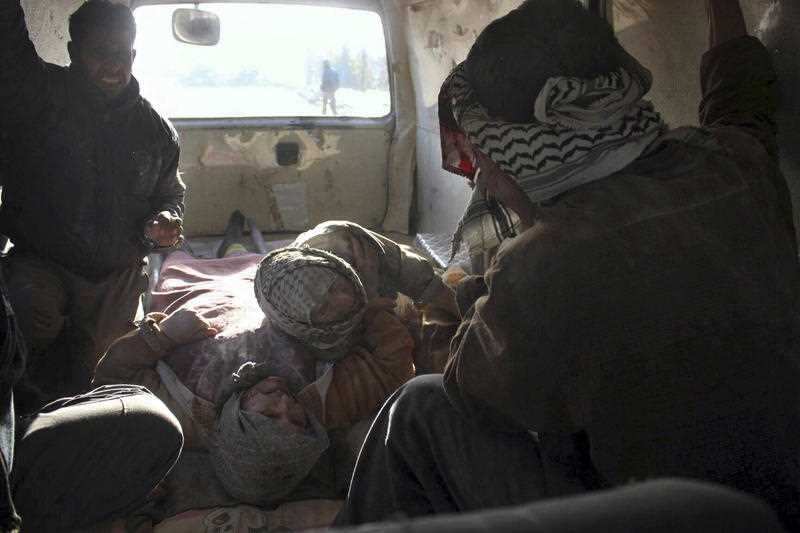The United Nations said Thursday it hoped aid convoys could head into Syria's besieged rebel-held enclave of Eastern Ghouta within days, after the Damascus government appeared to have finally provided authorisation.
"We may now be able to go to Eastern Ghouta in the next few days," Jan Egeland, head of the UN's humanitarian taskforce for Syria, said.
He told reporters in Geneva he had received word during a taskforce meeting on Thursday "we may have the first facilitation letter, permit from the government, to go to (the main Eastern Ghouta town of) Douma in a very long time".
But he stressed that the five-hour daily "humanitarian pause" declared by Russia for the enclave was not enough to allow aid deliveries or ensure orderly medical evacuations.
"Five hours is not enough," he insisted, underscoring that deliveries take time and that an estimated 1,000 civilians needed medical evacuation.
More than 40 trucks loaded with aid have been unable to reach the 400,000 people living in the battered enclave.
Mr Egeland's comments came as civilians in Eastern Ghouta continued to shun Russia's offer to quit the area, and as rebels and Moscow blamed each other for the humanitarian deadlock.
A five-hour daily "pause" announced by Moscow on Monday has led to a reduction in the bombardment that killed hundreds in only a few days.
But the humanitarian corridor offered by Russia for civilians to flee has remained ostensibly empty for a third day.
Avoid Aleppo repeat
The Russian declaration fell far short of a full 30-day ceasefire voted for by the United Nations Security Council last Saturday, which has yet to be implemented.
Mr Egeland voiced disappointment that the countries who unanimously voted through the Security Council resolution had not been able to ensure its implementation.
He stressed the catastrophe unfolding in Eastern Ghouta "is no tsunami".
"It is not a natural disaster, it is man-made from A-Z, and I think the sponsors of the armed groups can do more to hold them back," he said.
The UN special envoy for Syria Staffan de Mistura meanwhile said the UN would "not give up in asking for the full implementation of the resolution 2401".
"We will continue asking until we are red in the face, blue in the face, for both sides… to stop shelling each others' areas, and for convoys to be allowed" in, he told reporters in Geneva.
He said the UN was determined not to see a repeat of what happened in Syria's second city of Aleppo in 2016, when Russia and the Syrian regime also deployed a "humanitarian pause" as they looked to force out rebels.
"We cannot see a copycat of Aleppo taking place," Mr de Mistura said.

The UN says many civilians are in such bad shape they "will die within the next few days" without help. Source: Syrian Civil Defense White Helmets via AP
'Will die within days'
The Union of Syrian Medical Relief Organisations (UOSSM) stressed the urgency of ensuring a safe evacuation for those with dire medical needs.
Many are in such bad shape that they "will die within the next few days" without help, UOSSM chief Tawfik Chamaa told reporters, calling on the UN to send in international observers to oversee evacuations.
The medical charity, which has doctors on the ground in Eastern Ghouta, said that with only around 20 health facilities partially functioning there and a dire lack of doctors and medicine easily treatable injuries and diseases had become deadly.
He said there had been 275 amputations, including 140 above-the-knee, in recent weeks in the enclave, many of which "would have been avoided with basic medical care".
Share

